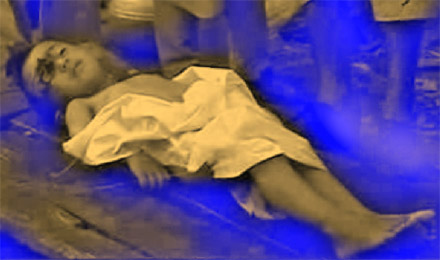
The war started on the last day of the summer 1980. It changed everything. It destroyed our neighborhoods and brought whoever lived in the lasting ruins closer to each other, but it separated us from the rest of the peaceful world.
The change didn’t happen slowly. It was abrupt. It occurred on a Tuesday night, in the third week of war at 10:30 PM. At 6:45 the sirens echoed and Tehran went dark. I hid inside my usual shelter, my closet, and my parents found refuge in the bathroom.
We waited.
The noise of a jet – flying high- turned into a deep powerful rumbling, as if thunderstorms were descending from skies, but before the first eruptions, a long moment of silence fell on the waiting city. The deafening blasts of bombs and anti-missiles shook the closet and threw me at the walls. The smell of dust and fire filled the room. My body ached.
Was I dead? I wondered.
I opened the door of the closet and glanced at my room. Broken glasses and crushed pieces of the window frame shone in the dark. Mother rushed inside and held me tight, sobbing silently. Father was standing by the door.
I looked outside. The apartment building at the corner of the main street was half destroyed.
“We better stay here,” Father said and mother nodded anxiously. “We got lucky this time.”
A woman screamed. “Someone might be injured,” I said and ignored their panic. I hurried to leave the house, and they followed me dreadfully.
It was a cold night brightened only by the full moon and the failing heat of the building on fire. The stench of burning plastic overshadowed the last sparkling of a dying star. The remaining blazes turned to a grey mist and covered the last leaves of swaying trees.
We walked fast toward the sinister wreckage. In the midst of this turmoil, a man screamed and his voice resonated in the dark city. “Wake up, wake up,” it pleaded.
Why would anyone even want to wake up? I wondered, and I wondered whether I would even care about dying.
People were gathered in circles, and their shadows leaned against the broken walls. I passed easily through the still or moving crowd, amazed at my own strength. Nobody resisted my desire.
At the center of this chaos, by the ruins, a skinny man, with dark skin and Islamic beard, held a child in his arms, shaking her forcefully and screaming wake up, wake up.
My mother shivered. “But it’s only half a child,” she whispered and wept. “He doesn’t know yet.”
“Wake up honey,” the man shouted.
But how could anyone dare to tell this man that his child, this headless corpse, would never wake up?
Father grabbed my shoulder and my mother reached for my hand. We held each other in a bitter silence and moved into the black shadow of witnesses.
“We should leave,” Father said.
“Yes, we should,” I said.
But I never left that moment. I never could. My heart pounded, like a reminder of the approaching end. I covered my ears. I didn’t want to hear the man’s tangible sorrow. I didn’t want to share his infertile existence. I didn’t want to be there anymore, to hear these countless stories reminding me of this place where I had to shut my mouth on empathy.
“We can’t help him,” Father whispered, pulling my arm. “Nobody can.”
The man’s bursts of grief, like rain, fell on the waterless soil of Tehran and reached the deep thirst of the grains of dirt.
“How are we going to forget?” Mother sobbed and wondered.
Like Mother, I wanted so desperately to forget everything, but I knew it wasn’t an option. By duty or by remorse. “We’re not going to forget,” I said and felt doomed. “We shouldn’t.”
I wondered if I had to remember a single tale of war, which story should I have chosen? The story of a dead child or the story of a living father?
But whatever this choice, I knew I had to remember it in a perfect way. It meant I should have dreamed about it over and over. I should have changed my wording again and again to find the exact place of each word in the flow of my narration. Each word had to be where it should be. I should have fallen asleep every night, repeating the same tale, learning to cry soundlessly, so I could keep the secret of its ending to myself. It meant every night I was going to turn the time back, to be in this exact moment in history where I was still a whole, and every morning I was going to wake up, broken in a thousand pieces, by the apathy of the world I lived in.
Was my testimony – like a fable – going to remain forever? I wondered. But how could I create this perfection through the simple description of a collapsing world? How could anyone ever imagine the eternal beauty out of this pure madness?
“You’re still too young,” Father said, pressing my shoulder. “Hopefully, one day you’re going to forget it all. Now, we better move on. It’s not a place to stay anymore.”
We went back home, already turned anonymous, weightless and defeated, carrying the shadow and the ashes of this war inside, still unaware of the extent of our incessant struggle for not owning this defeat for good.






